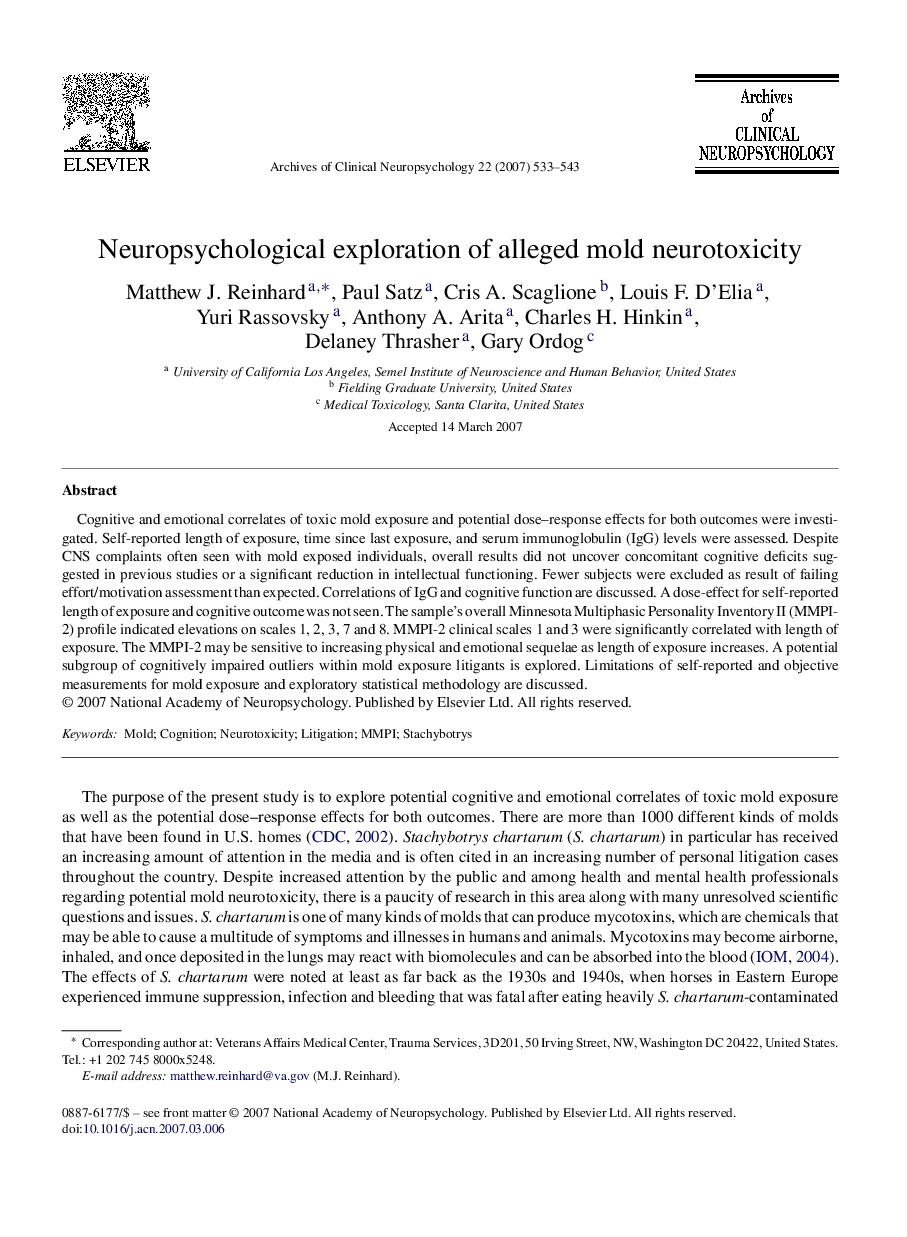| Article ID | Journal | Published Year | Pages | File Type |
|---|---|---|---|---|
| 901012 | Archives of Clinical Neuropsychology | 2007 | 11 Pages |
Cognitive and emotional correlates of toxic mold exposure and potential dose–response effects for both outcomes were investigated. Self-reported length of exposure, time since last exposure, and serum immunoglobulin (IgG) levels were assessed. Despite CNS complaints often seen with mold exposed individuals, overall results did not uncover concomitant cognitive deficits suggested in previous studies or a significant reduction in intellectual functioning. Fewer subjects were excluded as result of failing effort/motivation assessment than expected. Correlations of IgG and cognitive function are discussed. A dose-effect for self-reported length of exposure and cognitive outcome was not seen. The sample's overall Minnesota Multiphasic Personality Inventory II (MMPI-2) profile indicated elevations on scales 1, 2, 3, 7 and 8. MMPI-2 clinical scales 1 and 3 were significantly correlated with length of exposure. The MMPI-2 may be sensitive to increasing physical and emotional sequelae as length of exposure increases. A potential subgroup of cognitively impaired outliers within mold exposure litigants is explored. Limitations of self-reported and objective measurements for mold exposure and exploratory statistical methodology are discussed.
